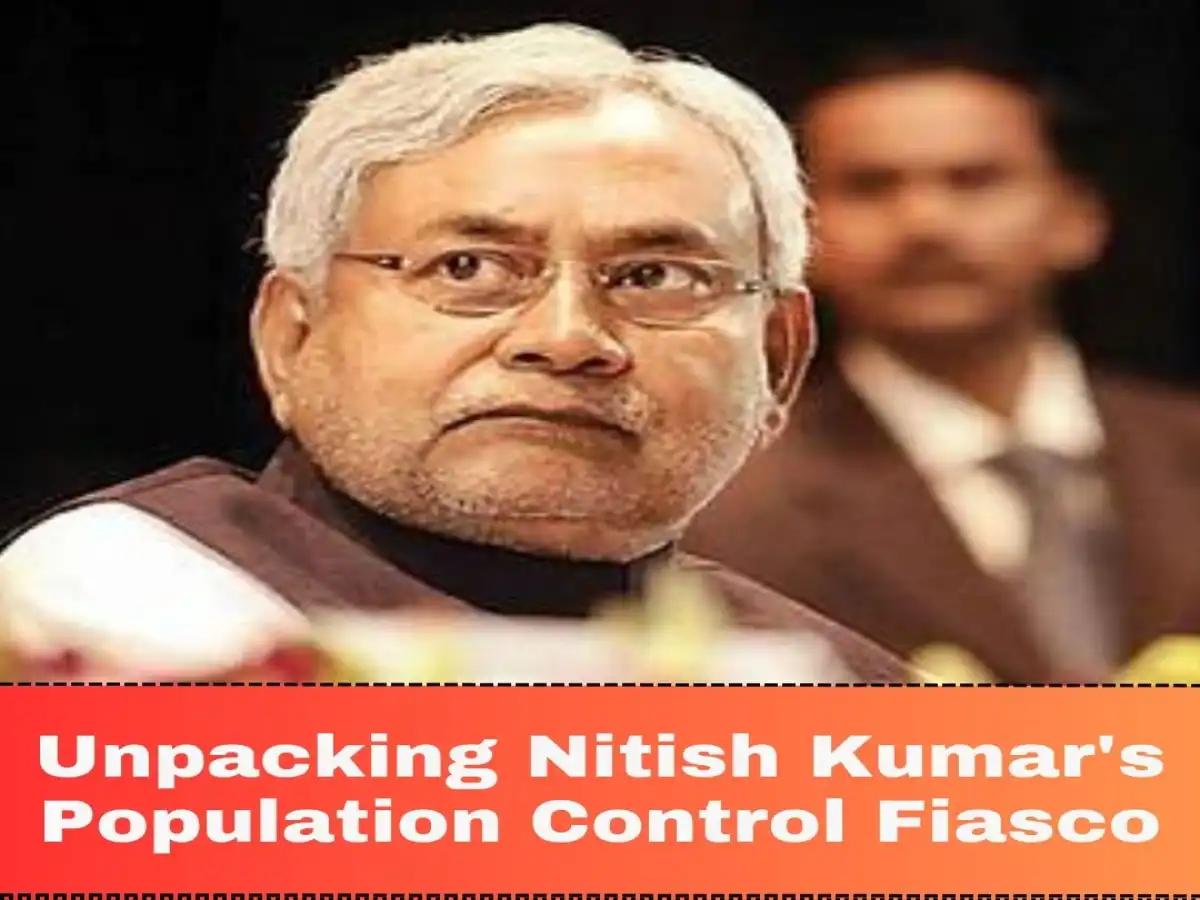Bihar Chief Minister Nitish Kumar found himself apologizing for remarks he made about the role of women’s education in population control during a session of the state Assembly. Let’s delve into the details of this incident, the ensuing reactions, and the broader context.
The Controversial Remarks
During the state Assembly session, Nitish Kumar stated, “I apologize and I take back my words. If my words were wrong, I apologize. If anyone got hurt, I take them back.” He emphasized that his intent was not to hurt anyone and that he has always believed that education is a crucial factor in population control. He further stated his commitment to women’s empowerment and development.
However, these remarks were not well-received, with the BJP and the National Commission for Women chief Rekha Sharma labeling them as “shameful,” “disgusting,” and “vulgar.” The remarks were widely criticized as an attempt to place the responsibility for population control on women.
The Assembly Uproar
Following his remarks, Nitish Kumar faced vociferous protests within the Assembly. He responded to the uproar by saying, “Why are all of you making noise? I told you… you saw, the reporters asked me, and I gave an explanation.”
Attempted Clarification
As the controversy continued to gain momentum, Nitish Kumar received some support from his deputy, Tejashwi Yadav, who claimed that the Chief Minister was discussing sex education in schools. Yadav clarified, “Let me clarify something… whatever the Chief Minister said was about sex education. People become hesitant over this topic… but it is taught in schools. He said what needs to be done practically…”
Despite this clarification, the opposition party, formerly an ally, targeted Nitish Kumar, calling him a man “whose mind is infested with worms from B-grade adult films.”
Opposition’s Criticism
Union Minister Nityanand Rai, a Lok Sabha MP from Bihar’s Ujiarpur, took a strong stance against Nitish Kumar’s remarks. He accused the Chief Minister of losing his “mental stability” and also criticized the Deputy Chief Minister for defending him. Rai stated, “It’s objectionable… the way he spoke about women. Tejashwi Yadav’s statement is also objectionable. Nitish Kumar is no longer worthy of being CM. He should detach himself from politics.”
The controversy also caught the attention of AIMIM chief Asaduddin Owaisi, who reminded Nitish Kumar that the Legislative Assembly is a sacred place. Owaisi suggested that the Chief Minister could have conveyed the same message by emphasizing that educated women can make informed decisions about when to have children, without using inappropriate words and gestures.
Caste Survey and Quotas
Apart from the controversy, Nitish Kumar’s government tabled the caste survey report during the Bihar Assembly session. The government passed a proposal to increase quotas for Scheduled Castes, Scheduled Tribes, Other Backward Classes, and Extremely Backward Classes from the existing 50 percent to 65 percent.
These revised quotas, in addition to the center’s 10 percent reservation for Economically Weaker Sections, will exceed the 50 percent cap mandated by the Supreme Court in 1992.
The decision to revise quotas was driven by the findings of the caste report, which indicated that 36 percent of Bihar’s 13.1 crore people belong to Extremely Backward Classes, while 27.1 percent are from Other Backward Classes. Additionally, 19.7 percent belong to Scheduled Castes, 1.7 percent to Scheduled Tribes, and 15.5 percent fall under the General Category. The report also highlighted that over 34 percent of all families in Bihar survive on less than ₹6,000 per month, and 42 percent of Scheduled Castes and Scheduled Tribes households live in poverty.
controversy surrounding Nitish Kumar’s comments on women’s education and population control has sparked significant debate and criticism. This incident took place within the context of important developments in Bihar, including the revision of quotas for various categories. The discussion and analysis of this incident continue to be a matter of public interest and concern.




